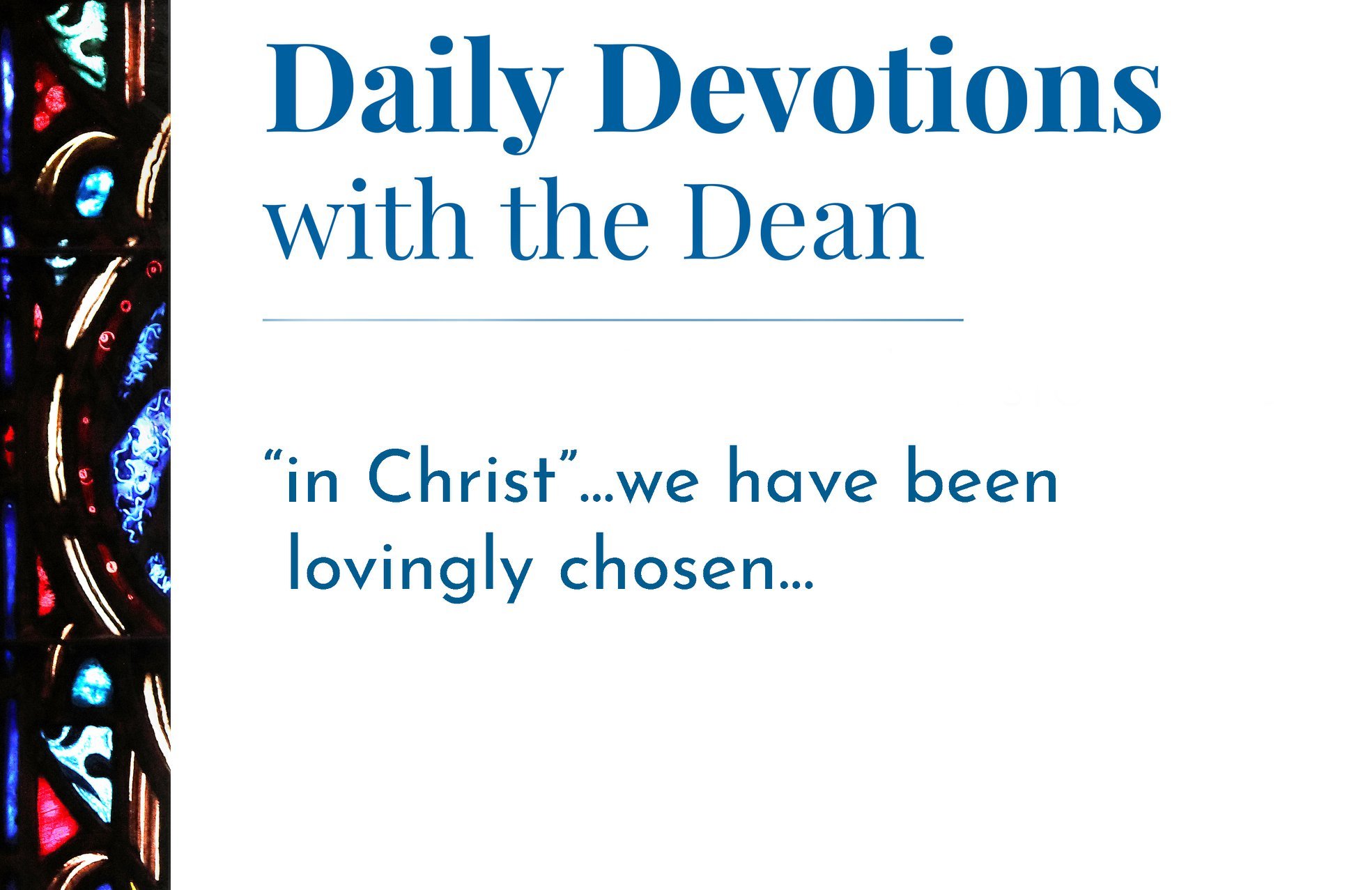Monday • 12/9/2024 •
Advent 2 Year 1
This morning’s Scriptures are: Psalm 25; Isaiah 5:8–12,18–23; 1 Thessalonians 5:1–11; Luke 21:20–28
This morning’s Canticles are: following the OT reading, Canticle 9 (“The First Song of Isaiah,” Isaiah 12:2–6, BCP, p. 86); following the Epistle reading, Canticle 19 (“The Song of the Redeemed,” Revelation 15:3–4, BCP, p. 94)
Welcome to Daily Office Devotions, where every Monday through Friday we explore that day’s Scripture readings, as given in the Book of Common Prayer. I’m Reggie Kidd. Thanks for joining me. This is Monday of the second week of Advent (the Christian “New Year,” and we are in “Year One” in the cycle of readings of the Daily Office.
Isaiah. In today’s verses in Isaiah (selected verses in chapter 5), the prophet provides a succinct summary of the reign of evil: injustice, intemperance, and mendacity.
God had planted Israel as a vine among the nations. Her calling in this world was to be the place where God began to reverse the curse of Eden, and to bring life back into the world—restoring right relationships, personal wholeness, and faithfulness.
As this past Saturday’s reading in the Daily Office put it: “My beloved had a vineyard on a very fertile hill. … he expected it to yield grapes, but it yielded wild grapes” (Isaiah 5:2). Instead of right relationships, Isaiah finds broken relationships. Israel’s social life is crippled by greedy landowners and developers who displace the poor, and leave themselves with vast, but barren estates: “Ah, you who who acquit the guilty for a bribe, and deprive the innocent of their rights!” (Isaiah 5:9–10,23).
Instead of personal wholeness, Isaiah finds people destroying themselves with heavy drinking and dissolute partying: “Ah, you who rise early in the morning in pursuit of strong drink, who linger in the evening to be inflamed by wine, whose feasts consist of lyre and harp, tambourine and flute and wine … Ah, you who are heroes in drinking wine and valiant at mixing drink…” (Isaiah 5:11–12,22).
Instead of faithfulness, Isaiah finds people perpetuating the lying that the serpent of Eden inserted into the human equation: “Ah, you who drag iniquity along with cords of falsehood … Ah, you who call evil good and good evil, who put darkness for light and light for darkness, who put bitter for sweet and sweet for bitter! Ah, you who are wise in your own eyes, and shrewd in your own sight!” (Isaiah 5:20–21).
In Isaiah’s stinging and comprehensive indictment, he anticipates Paul’s appeal to the Cretan self-indictment (“Cretans are always liars, vicious beasts, lazy gluttons”—Titus 1:12). And it’s perhaps not insignificant that in the verses in Isaiah 5 not included in today’s readings (verses 13–17), Isaiah calls Israel’s life worthy of Sheol, or Hell (verse 14). It so happens that both the Latin poet Virgil and the Italian poet Dante map Hell as a descent from “intemperance” to “injustice” to “mendacity”—a progression entirely reminiscent of Isaiah’s description of a Sheol-like life.
If, this Advent, the world around (and even within) you looks too much like the world that Isaiah and Paul and Virgil and Dante saw, it’s because we still await that Second Coming in which all will be made finally right. Come quickly, Lord Jesus!
Luke. Today’s passage in Luke is precisely parallel to Matthew 24:1–14. In that passage as well as in this one (Luke 21:20–28), Jesus is addressing a specific issue: the future of Jerusalem and the temple in the upcoming so-called Jewish War (A.D. 66–70).
Recall how Jesus had wept tears over Jerusalem as he approached the city: “As he came near and saw the city, he wept over it, saying, ‘If you, even you, had only recognized on this day the things that make for peace! … Indeed, the days will come upon you when your enemies … will crush you to the ground … and they will not leave within you one stone upon another; because you did not recognize the time of your visitation from God’” (Luke 21:41–44).
Two things, I think, are worthy of note:
Jesus understands that his redemption of creation will include the elimination of Jerusalem’s earthly temple. The temple’s destruction, coming at the violent hands of a Roman army, is a matter of deep grief to him. The desolation of the Temple Mount (still in effect) is cause for us to share Jesus’s tears and to call out to God for children of that city to recognize in Jesus, Son of David, their “visitation from God.”
“People will faint from fear and foreboding of what is coming upon the world, for the powers of the heavens will be shaken. Then they will see ‘the Son of Man coming in a cloud’ with power and great glory’” (Luke 21:27). While the desolation Jesus predicts will come upon Jerusalem, that destruction “down here” will mark the very moment that “up there” he receives from his Heavenly Father all authority and dominion over the earth. This, I believe, is the “coming” of the Son of Man into the dominion that Daniel 7 had prophesied for.
Over all the vicissitudes of our lives, over all the madness of earth’s history—over it all—Jesus reigns. And one day he will return in visible, glorious triumph. Lord, haste the day when faith shall be sight…
Paul. As though he had today’s words from Isaiah and Jesus on his mind, Paul writes for us in the meantime: “… let us be sober, and put on the breastplate of faith and love, and for a helmet the hope of salvation. For God has destined us not for wrath but for obtaining salvation through our Lord Jesus Christ, who died for us, so that whether we are awake or asleep we may live with him. Therefore encourage one another and build up each other, as indeed you are doing” (1 Thessalonians 5:8b–11).
Be blessed this day,
Reggie Kidd+




















